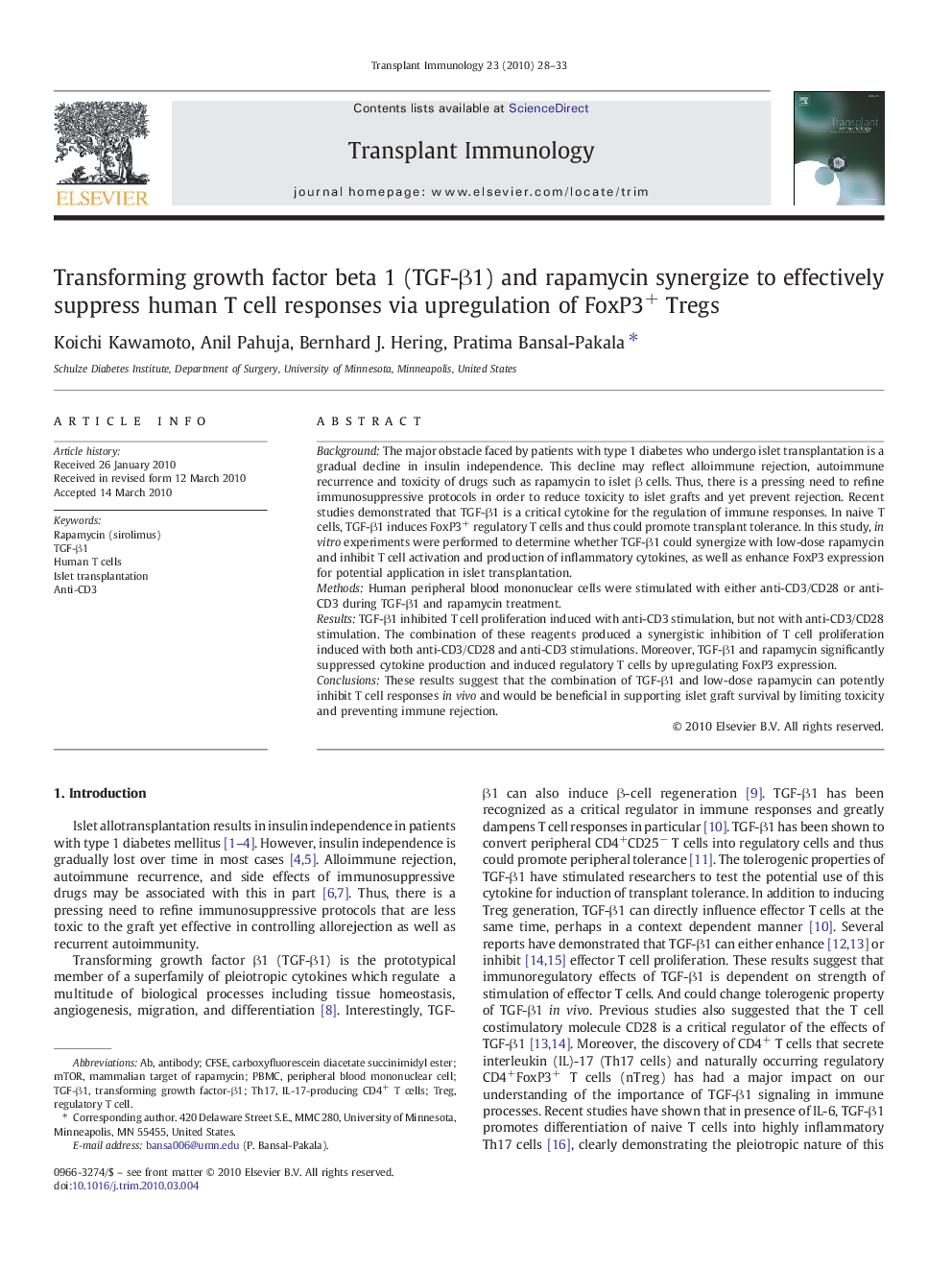| کد مقاله | کد نشریه | سال انتشار | مقاله انگلیسی | نسخه تمام متن |
|---|---|---|---|---|
| 3392242 | 1592682 | 2010 | 6 صفحه PDF | دانلود رایگان |

BackgroundThe major obstacle faced by patients with type 1 diabetes who undergo islet transplantation is a gradual decline in insulin independence. This decline may reflect alloimmune rejection, autoimmune recurrence and toxicity of drugs such as rapamycin to islet β cells. Thus, there is a pressing need to refine immunosuppressive protocols in order to reduce toxicity to islet grafts and yet prevent rejection. Recent studies demonstrated that TGF-β1 is a critical cytokine for the regulation of immune responses. In naive T cells, TGF-β1 induces FoxP3+ regulatory T cells and thus could promote transplant tolerance. In this study, in vitro experiments were performed to determine whether TGF-β1 could synergize with low-dose rapamycin and inhibit T cell activation and production of inflammatory cytokines, as well as enhance FoxP3 expression for potential application in islet transplantation.MethodsHuman peripheral blood mononuclear cells were stimulated with either anti-CD3/CD28 or anti-CD3 during TGF-β1 and rapamycin treatment.ResultsTGF-β1 inhibited T cell proliferation induced with anti-CD3 stimulation, but not with anti-CD3/CD28 stimulation. The combination of these reagents produced a synergistic inhibition of T cell proliferation induced with both anti-CD3/CD28 and anti-CD3 stimulations. Moreover, TGF-β1 and rapamycin significantly suppressed cytokine production and induced regulatory T cells by upregulating FoxP3 expression.ConclusionsThese results suggest that the combination of TGF-β1 and low-dose rapamycin can potently inhibit T cell responses in vivo and would be beneficial in supporting islet graft survival by limiting toxicity and preventing immune rejection.
Journal: Transplant Immunology - Volume 23, Issues 1–2, May 2010, Pages 28–33